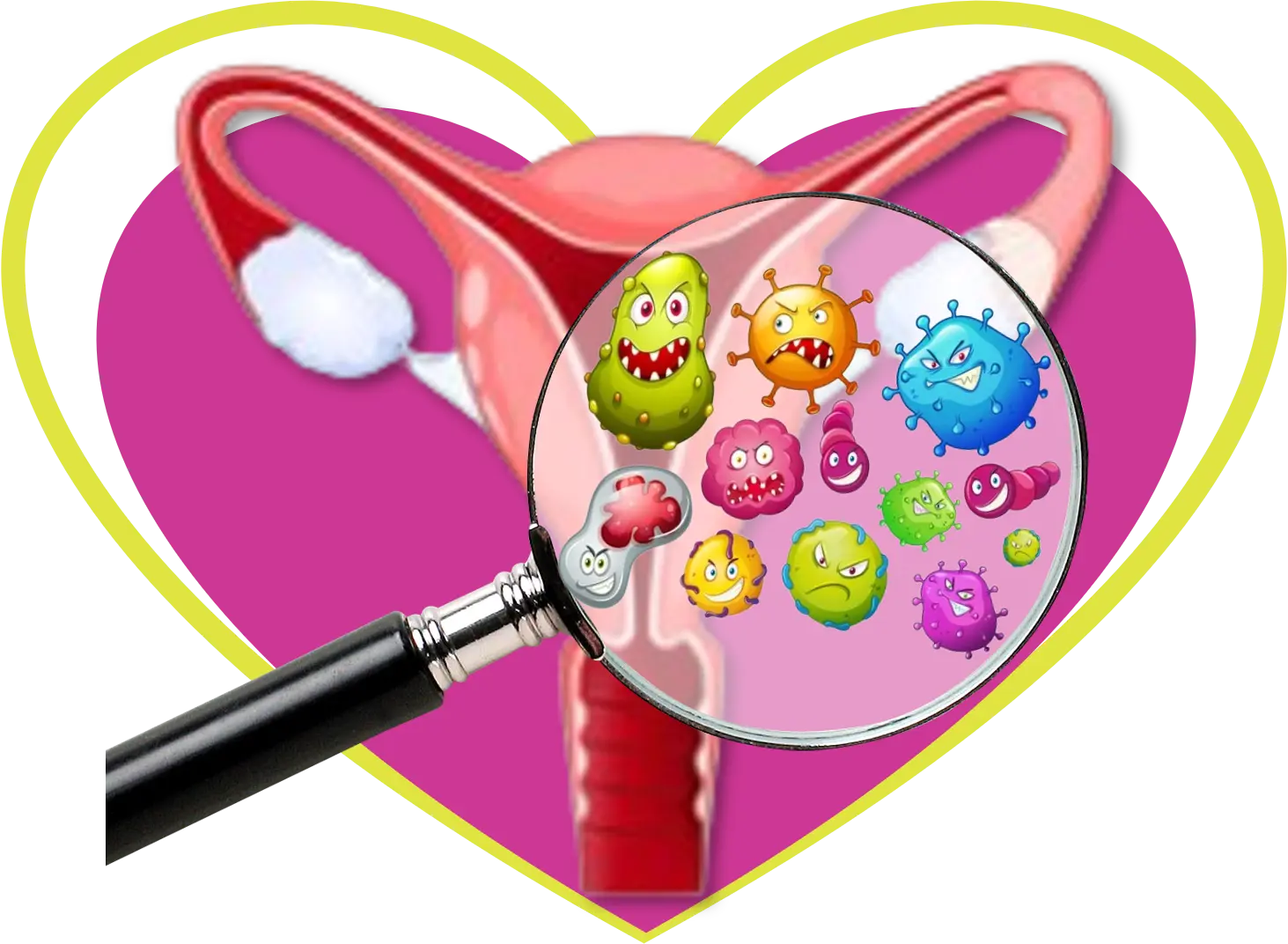What are vaginal infections?
Vaginal infections are conditions caused by an overgrowth of certain microorganisms in the vagina, such as bacteria, yeast, or other pathogens, leading to discomfort and potential symptoms.
What are the symptoms?
Common symptoms include itching, unusual odors or discharge, burning sensations, and discomfort during urination or sex. However, symptoms can vary depending on the type of infection.
How do I know if I have an infection?
Your provider can confirm a vaginal infection through a thorough examination and/or collecting a sample of vaginal discharge for analysis. A lab then evaluates and identifies this sample.
Possible ways I got infected:
Vaginal infections can result from various factors, including changes in the balance of vaginal bacteria, sexual activity, antibiotic use, diet changes or a weakened immune system.
- Yeast Infection: A vaginal yeast infection is a fungal infection that causes irritation, discharge and intense itchiness of the vagina and the vulva — the tissues at the vaginal opening. Commonly known as vaginal candidiasis, this condition affects a significant number of women, with many experiencing multiple episodes throughout their lives. Despite not being classified as a sexually transmitted infection, the risk of a vaginal yeast infection is elevated during initial sexual activity. Pregnant women, those with diabetes, and/or using antibiotics or oral contraceptives may be more susceptible to yeast infections. Fortunately, medications are effective in treating this type of infections.
- Trich: Trichomoniasis, a prevalent sexually transmitted infection caused by a parasite, can result in women experiencing a malodorous vaginal discharge, genital itching, and discomfort during urination. Interestingly, men with trichomoniasis often show no symptoms. Pregnant women with this infection might face an increased risk of premature delivery. Typically, the recommended treatment are antibiotics. To prevent reinfection, it’s crucial for all sexual partners to undergo treatment simultaneously. Consistent and correct condom use during sexual activity can also help lower the risk of infection.
- Bacterial vaginosis: More commonly referred to as BV, the results of this infection range from no symptoms at all to a foul-smelling ‘fishy’ discharge, vaginal itching and/or occasional pain during intercourse or urination. This occurs when the natural balance of bacteria is disrupted. Typically, balanced bacterial levels contribute to vaginal health, but an overgrowth of specific bacteria can lead to BV. This condition can manifest at any age, but it’s more prevalent during the reproductive years, particularly if sexually active, as hormonal changes during this period create conditions conducive to the growth of certain bacteria over others.
Possible Treatment options?
Treatment options depend on the type of infection but may involve vaginal cream, vaginal suppository, antifungal medications, antibiotics, or other specific medications to restore the natural balance of microorganisms in the vagina. Depending on the type of infection your partner may need treatment as well. Many times, men have no symptoms even though an infection is present. An important part of treatment is to also stop behaviors that can lead to overgrowth of bacteria, such as douching.
What should you expect at the time of the procedure?
During the screening process, depending on severity or type, your provider may use a swab or perform a pelvic exam to collect a sample of vaginal discharge. Then, we send this sample to the lab for testing and identification.
What happens after the procedure?
After the procedure, the sample collected is sent to the lab for testing. The lab will identify the particular type of bacterial infection and return the final results. Your provider will then discuss the results with you and recommend an appropriate treatment plan. Treatment may involve medications or other interventions tailored to the specific type of infection.
Still have questions about HPV or it’s vaccine?
Don’t worry, because you’re not alone. Remember that we’re here to help and support you, so don’t stress. Having questions is a good and healthy thing! Check out our additional resources below:
- Prefer reading? Here’s an article from ACOG (American College of Obstetricians and Gynecologists) on the matter.
- Rather watch or listen? Here’s video of Nelly herself, one of our esteemed providers, discussing the topic.
- General questions? Reach us via any contact methods listed at the bottom of this page (live chat, email, text messages, or a phone call).
- For specific medical questions or advice, it’s always best to schedule an appointment.
 TLC’s Video Library
TLC’s Video LibraryEnjoy countless hours of expert insights, wellness tips, with a dose of inspiration and humor. Your path to a healthier, happier you starts now!
